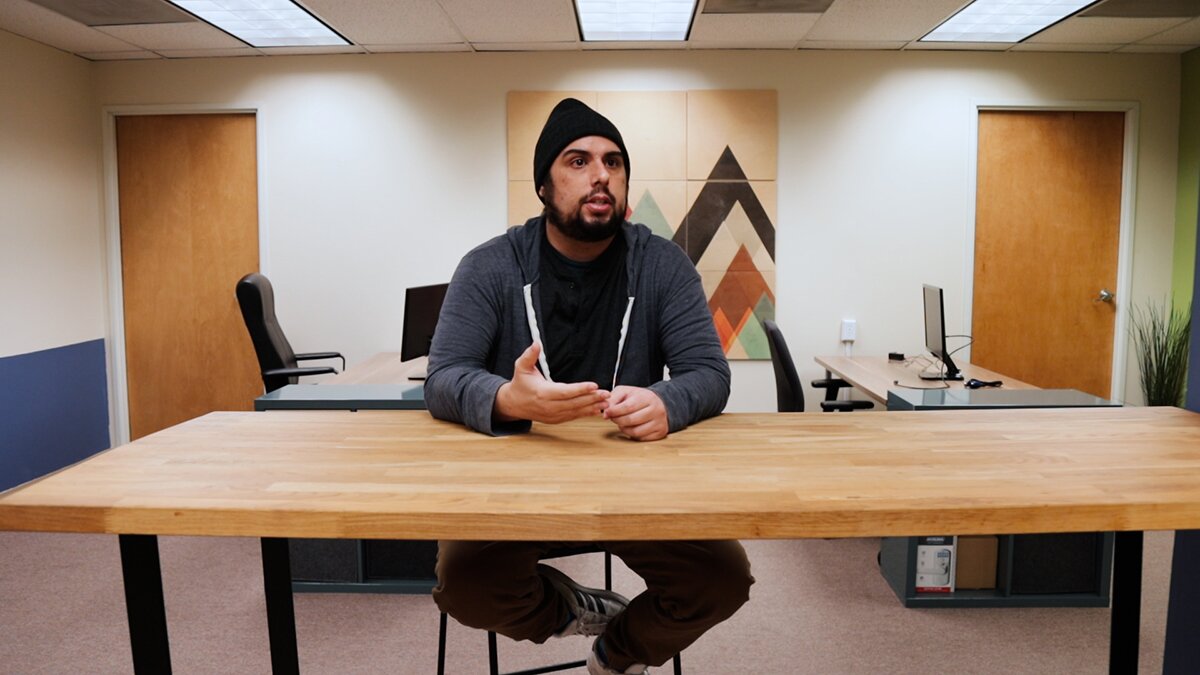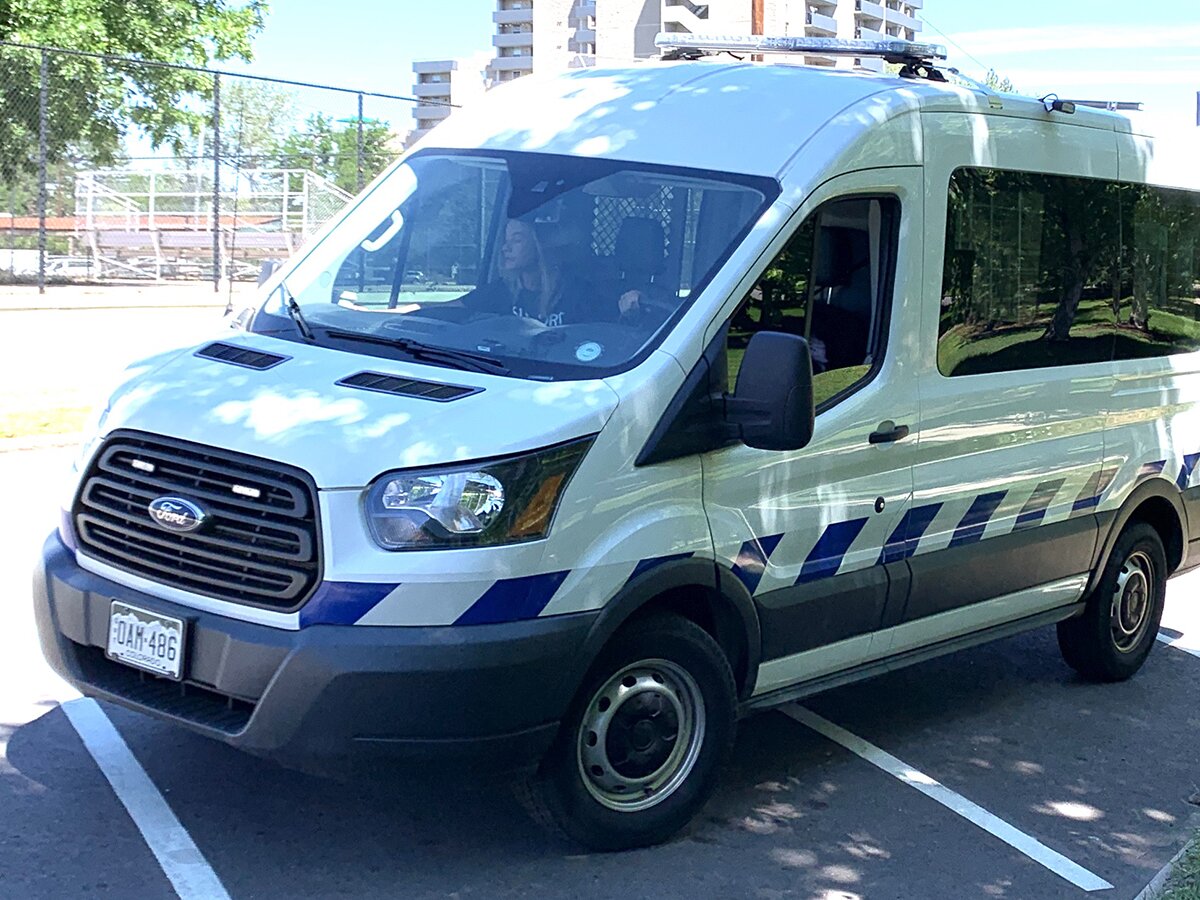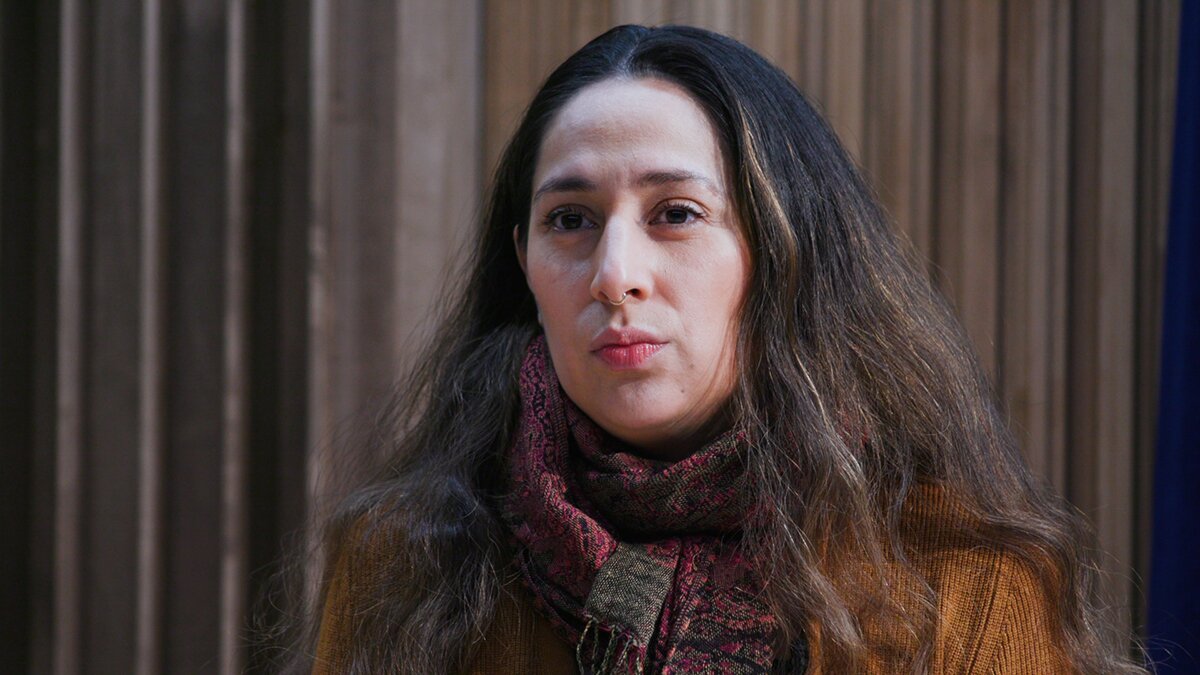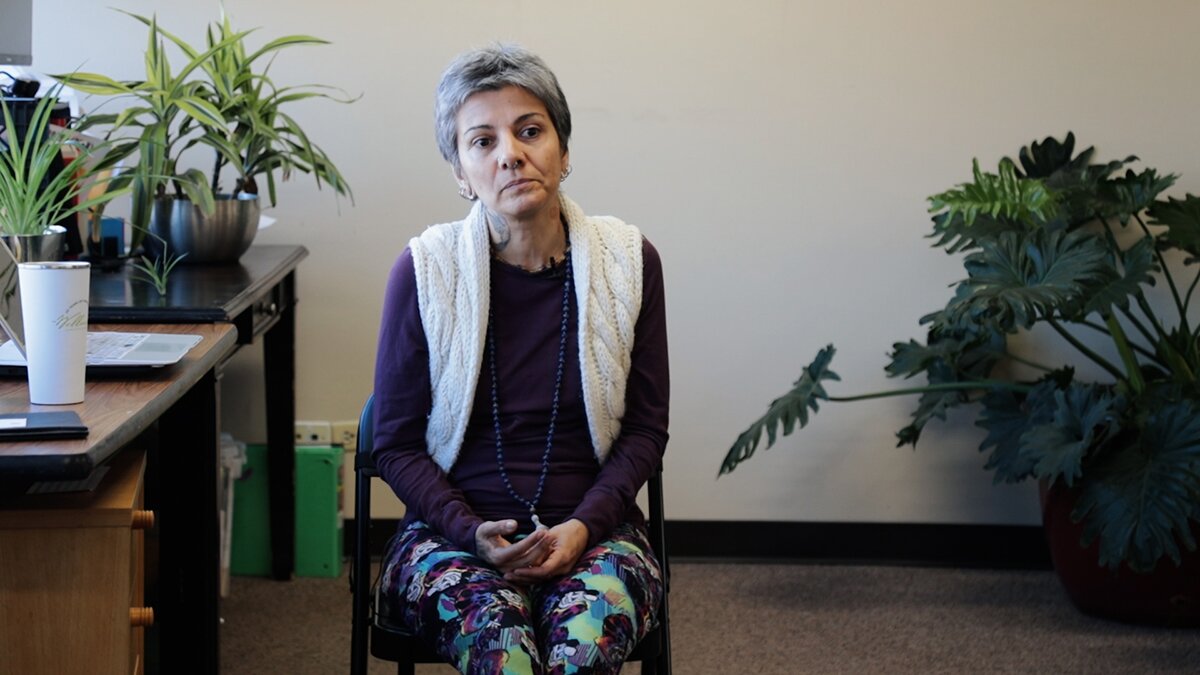As STAR expands, community members feel left out of planning. Here’s why it matters.

DENVER — Despite plans to expand Denver’s Support Team Assisted Response program, also known as STAR, some community members believe crucial voices and concerns are being left out of the decision-making process.
The program is meant to respond to nonviolent crisis situations as an alternative to police intervention in an effort to minimize unnecessary arrests and costs, and to provide mental health support and resources.
What started as a single white van staffed by a behavioral health clinician and an emergency medical technician is growing to six vans, eight clinicians and six medics after an arguably successful year and a half. Recently, the Denver City Council approved a $1.4 million contract with the Mental Health Center of Denver (MHCD) for the program’s expansion which will increase operating hours and response range.
But at least two community leaders who represent the community’s concerns on STAR’s 15-member Community Advisory Committee – which meets monthly to provide guidance to the program and whose members represent each City Council district – are wary of the program’s impact, community partnerships and transparency.
Vinnie Cervantes, the organizing director of Denver Alliance for Street Health Response (DASHR), believes the program is leaving out the voices of the community it serves and runs the potential risk of perpetuating more harm by contracting with the Mental Health Center of Denver.
“I think we really need to decentralize mental health services and even medical services in general. I think that we have a lot of programs that are coalesced into one or two organizations,” Cervantes told Rocky Mountain PBS.
A key player in STAR’s conception, Cervantes accompanied other community advocates, city officials, law enforcement and representatives from MHCD on a trip to Eugene, Oregon, back in 2019 to learn more about Crisis Assistance Helping Out On The Streets or CAHOOTS. Since 1989, Eugene’s first-response team has provided support for crises involving mental illness, homelessness, and addiction as an alternative to law enforcement.
“We were founded as a group explicitly trying to bring this kind of CAHOOTS program to Denver,” Cervantes said of DASHR.
After the trip to Eugene, the Denver Police Department started a 60-plus person work group to get the STAR pilot program launched on June 1, 2020, with Cervantes’ organization, DASHR, participating as the program facilitator. In its first six months, the team responded to 748 calls – all resulting in no arrests. You can read more about the pilot evaluation here.
The Community Advisory Committee
After the pilot launch, a smaller subcommittee was formed with the goal of creating a plan for expanding the STAR program. Within that subcommittee, volunteer members like Cervantes put forth a recommendation to form the Community Advisory Committee and a proposed charter to reflect the program’s community-oriented mission, vision, and goals. “That's always been our intention, that the community should drive this program, that it should be a community-owned program like CAHOOTS started as,” Cervantes said.
But it would be almost an entire year until Cervantes and three other members would hear about the charter or the official formation of the STAR Community Advisory Committee. In the beginning of 2021, management of the program moved from Denver police to the Denver Department of Public Health and Environment (DDPHE), and as result, community collaboration started to fall short, according to Cervantes.

“We had some commitments from [Police] Chief [Paul] Pazen about what that program would look like after the pilot was finished, but then the pilot was then moved to DDPHE for the long-term program. So it's kind of hard, in my opinion, for Chief Pazen to live up to some of the commitments when [STAR] was in a different department,” Cervantes said.
In March 2021, $1.4 million from DDPHE was allocated to expand STAR’s staff, vans and equipment. A request for proposal (RFP) for community services, establishing partnerships with local medical and mental health providers, was also announced — a process that Cervantes felt the community had been left out of.
“When it came to the actual response mechanism itself, it was MHCD and it was Denver Health that were partnered for the pilot,” he said. “That wasn't really a decision that the community had input on when it came to the launch of the pilot.”
Cervantes believes the community should have a voice in the RFP process and any partnerships made with STAR.
“It really comes down to the collaboration with the community. There have been a lot of decisions made about the full program, beyond the pilot, that have been without community, and that’s something we're still fighting to maintain any kind of involvement,” he said.
Cervantes said he didn’t learn that DDPHE was seeking applications for the Community Advisory Committee until that June. He and the other “original'' members – which included Nita Gonzales, Ana Cornelius with Denver Homeless Out Loud, and Dr. Caroll Watkins Ali with Denver Interfaith Alliance – met with DDPHE about whether or not they needed to apply to the committee they helped create. The four members were eventually grandfathered into the Community Advisory Committee and the rest of the seats were later allocated by representatives from each city council district.
“We later learned that Valerie Schlecht with the Colorado Cross Disability Coalition, one of our original five, passed in May and never got to be in the committee she helped create,” Cervantes wrote in an email.
Where the ‘control’ lies
Since their first meeting in September 2021, the Community Advisory Committee and DDPHE have come together monthly to discuss aspects of the charter, expansion plans, community impact, and data tracking. A recurring point of contention, which was debated in the most recent February 23 meeting, centers on the first core value of the STAR program’s charter: Community-driven control. Specifically, the word “control,” Cervantes said.
Nachshon Zohari, the project manager for DDPHE, said the word “collaboration” better aligns with how the program operates.
“The word ‘control’ for most people means that if you have control, then what happens depends on what you singularly want to happen,” Zohari said in an interview with Rocky Mountain PBS. “We have reworked that core value, and it now reads ‘community-driven collaboration,’ and it gives voice to the central and important role of the voice of community as it is in collaboration with many other parties … It isn't a question of cutting out community at all. It really is trying to capture this idea of collaboration.”
But Cervantes believes ‘control’ should remain in the charter. “I think there’s an unfounded concern that somehow the community is just going to run away with this program and its advisory committees operating separately from the program. None of that is true,” he said. “The city has ultimate power in this program. They've made all the decisions so far, largely without us being present.”
STAR originated within the community, said Ana Cornelius, another committee member raising some concerns about the program’s direction. “It's our program. It was born out of community and its success comes from that. We know what we need better than anybody else,” she said.
Cornelius, who serves as the executive director of social change and advocacy for Denver Homeless Out Loud, believes control of STAR should largely stay within the community “in order to remain successful,” she said. “I don't really see why the city would pick a contentious position when we've been collaborative throughout the entire process.”
One of the arguments for the community to have control of STAR as it expands, according to Cervantes and Cornelius, ties directly to the request for proposal process.
When DDPHE sent out the RFP for STAR and an RFP for community support partnerships, “that was something that the community side and the city side completely disagreed with,” Cervantes said. “We said, ‘absolutely not,’ because we didn't have any kind of tangible idea of what that would look like and what we were asking of folks to apply for if we were going to do a pilot program preparing for community supports. And we hadn’t finalized the vision for expansion for STAR. So we didn't even complete that RFP, so we didn't want to go to another one. But the city went forward and issued both of those RFPs anyway.”
With only one applicant, the Mental Health Center of Denver is the main mental health provider for STAR, “which is not what we had envisioned,” Cornelius said. “We would like it to be more than one group, and not have a monopoly. We would prefer that it be decentralized across the community with lots of providers who specialize in different populations.”

More than one provider would allow STAR to be culturally responsive, which is the second core value in STAR’s charter, according to Cervantes. Furthermore, Cervantes said that contracting with MHCD as the sole provider for behavioral health calls into question DDPHE’s intentions for getting people tangible help through STAR.
In December, Colorado News Collaborative published an investigation outlining how the state’s behavioral health system, which the MHCD falls under, is turning away some of Colorado’s most at-risk individuals, in addition to charging up to 17 times more than independent Medicaid providers.
The investigation also found that “the state’s payment system inadvertently created a financial incentive for the centers to take on fewer ill people and charge higher costs, while also protecting them from competition” and that several centers have no Spanish-speaking providers.
“I think that it has created harm in terms of not only the expectation for those types of programs and how it impacts the community, but to what extent equity and diversity shows up within those programs and how they respond to the community,” Cervantes said.
To remedy this, DDPHE announced another round of RFPs for community-based organizations, “including, but not limited to Black, Latino, Indigenous, people of color, and members of the LGBTQ and disability communities.” That RFP, which closed to applications on March 11, 2022, is intended to result in a network of local providers for the emergency response team and presumably meet the needs of the communities STAR serves.
“There certainly is no limit on how many services can be provided to folks on STAR and [we] have not seen a negative impact to the community or the people that we're serving,” STAR operations manager Carleigh Sailon said. “We're aware of concern with the Colorado behavioral health system as a whole. We're very proud of the work that STAR is doing and haven't seen concerns.”
Sailon also told Rocky Mountain PBS that the program prioritizes diversity in hiring. “Our responders reflect the communities in which they're responding,” she said. “And that includes doing some different sort of recruiting practices than we typically would — reaching out to a very diverse population of clinicians and medics to make sure that we were prioritizing cultural diversity and language ability for folks working on the STAR van.”
Interactions with the community
Because the demand for STAR is higher than the program’s current capacity — thus the continued growth — Cervantes heard from some community members that police are showing up on calls with STAR, instead of just STAR staff, or on calls where STAR is explicitly requested.
“We're hearing from the communities that the STAR van is showing up with police rather than instead of police. That's not something we wanted,” Cervantes said. “That's absolutely not the idea of the program. In fact, that's what co-responders do.”
While the STAR van is not used by co-responders or police, on occasion a co-responder or STAR might respond to a call with police instead of just STAR if there’s a safety concern, like “someone wielding a knife downtown, STAR wouldn’t respond to that,” Sailon explained. “While I recognize that folks may not like the optics of STAR responding alongside police, I would rather have a clinician providing support to a member of our community in crisis if there is a need for police than none at all.”
And if a co-responder is unavailable, STAR may step in and provide behavioral health and medical support as opposed to just sending an officer, Sailon said. “But that is not even a daily occurrence.”
And sometimes, people call dispatch and explicitly request STAR, but police are sent instead. That happened when Judith Marquez sought help for her cousin struggling with substance abuse in January 2022. After spending a week in his car, Marquez’s cousin (whose name is omitted for his privacy) needed help, so Marquez called STAR.
“I had heard of the STAR project through the community, and I really was excited about that option. And so, because we definitely didn't wanna call the police, … we didn't think it was necessary. We just really wanted him to get medical treatment, you know, like detox,” she told Rocky Mountain PBS.

According to Marquez, dispatch said they would make the decision to send police or not. And she was shocked when five police cars showed up at her aunt’s house in Denver's Montbello neighborhood.
“I was actually really scared because, you know, again, we have seen so many times in our community how police intervene in situations like this, and it doesn't go well,” she said. “So I was really, really fearful.” Marquez also said she felt responsible to communicate with police when they arrived because her Spanish-speaking aunt doesn’t understand English well.
Marquez was relieved when the STAR van showed up about 20 minutes after police arrived. But the officers remained at the house while STAR’s clinician and medical technician provided support to Marquez’s cousin. According to Marquez, the police officers were making jokes about substance-related calls the previous night.
“There was no escalation, there was no like safety concern or anything. So they were just waiting around as the STAR talked to my cousin,” she recalled. “And they were joking around how like the night before they had, you know, got a call about a naked man running through the streets because he was, you know, in a drug-induced, you know, crisis. And I thought that was, like, really insensitive.”
At one point, Marquez said the police recognized that they weren’t trained to respond to calls like this. “I thought that was really interesting.”
Cervantes is concerned that when police show up with STAR, it could send the wrong message about what the program does.
“In Denver, when it comes to the impact,” he said, “if we say the program is one thing and it’s not quite that but it gives, I think, the public a false understanding of what exactly this is, to what extent they can trust it, to what extent they can rely on it as a true alternative versus being something that's an extension of the system that they've already had an issue with. And I think that's the big concern in the long term. Is it a continuation of the system that exists that has been harmful? Or something that's different, truly transformative in a way that the community can trust that it is something that we're really reimagining how we approach these issues.”
How success is measured
Despite some room for improvement, STAR has proved essential to Denver. Since the launch of the pilot, the team has responded to at least 3,000 calls in every police and city council district in Denver, spanning welfare checks to assists. However, with the rise in homelessness, data show that 60% of individuals served by STAR are experiencing homelessness.
“Our department heads are all overwhelmed with the public response to so much visible homelessness and so it’s using up a lot of very costly services,” said Cornelius, who represents the unhoused community on the Community Advisory Committee.
[Read more: First-time homelessness doubled in Denver area over the past year]
Denver Homeless Out Loud’s Swept to Nowhere 2021 report found that 70% of people who are swept return to the very same spot they were swept from. “So it's not solving anything and we're throwing all this money away,” Cornelius said. “And we're using up our emergency services which should be being used up for emergencies.”
Corneilus, who on several occasions has called STAR for support for someone experiencing homelessness, believes the city should focus on solving the ongoing housing crisis in Denver since STAR doesn’t have the ability to provide long term solutions currently needed.

“Some of the things that STAR can offer are like connections to mental health services. They might be able to give you a blanket. They might be able to give you some snacks and maybe some hand warmers, but what that person actually needs is housing,” she said. “And so if we don't have the resource on the back end, then how is this program successful?”
If homelessness weren’t a problem then STAR could work as designed, Cornelius said, “because STAR is really meant to be there for people who are having a mental health crisis, which is not a police matter … We would have greater health and wellness throughout the community if we had more resources like STAR.”
People are hungry for an alternative to police, Corneilus said. “I think that they are overwhelmed and desperate. They don't know what to do. And STAR is a softer touch, a less traumatizing approach to the entire community.”
Calls for transparency
To assess how successful STAR is, how the program can be improved and to better understand participant outcomes, the Urban Institute is conducting a third-party evaluation of STAR and the co-responder program. Through document reviews, interviews, and ride-alongs, the Washington, D.C.-based social and economic policy research center will spend the duration of 2022 investigating how data is collected, how the program has evolved, patient satisfaction, outcomes for people of color, communication between STAR and law enforcement, the network of providers and more.
“I’m optimistic; I’m glad it’s happening,” Cornelius said of the third-party evaluation. “I'm glad that we have some say in how that looks and what data points are collected.”
In the meantime, Cervantes wants more transparency from DDPHE about how STAR is operating. “I think it would be helpful for the public and for this committee to know what process exists even if we don't know specifically what's being done with particular staff or we don't have say on like disciplinary actions themselves, but just some kind of transparency to point our community towards needs of giving feedback in a way that might result in disciplinary actions,” Cervantes said in the February 23 Community Advisory Committee meeting.
That’s why he focused on accountability in the charter and called for a transparent process for the public to file complaints, he said.
Miguel Ceballos, who represents Montbello on the Community Advisory Committee, also raised questions about the disciplinary process during February’s meeting. “The way that I interpreted it is, like, ‘it's not your purview, don't worry about it.’”
As vendors for STAR, Denver Health and the Mental Health Center of Denver operate on their own disciplinary protocols and ethics guidelines, separate from city employees. According to Sailon, all of the STAR employees are regulated through their licensure by Colorado's Department of Regulatory Agencies, or DORA. “Anyone who has a grievance or an issue with an ethical concern around their license, you can look that up. And we currently don't have any employees on STAR who have ever had any sort of grievances or anything filed by DORA,” she said during the meeting.
But Cervantes thinks it’s unlikely that the public knows how to access information about clinicians’ licensure or how to file a complaint, and worries about the systems of accountability in place are not enough.
Worried that STAR runs the risk of being co-opted by the city, Cervantes is looking for a solution.
“It's a pretty universal fear of kind of this exclusion of community, the co-optation of these programs and kind of leading them into a place where they shouldn't be or something that they shouldn't be to the community,” Cervantes said. “That's a big concern of ours.”
To regain community control, DASHR is partnering with Raheem to launch their own response tool. Though still in the beta-testing phase, the PATCH app will act as a non-violent emergency response, similar to STAR, connecting the community to mental health resources and social services. Instead of calling 9-1-1, app users can request assistance from PATCH’s network of first responders.
Cervantes believes only the community knows what is best for the community.
“At its best, STAR could either be a community-driven program that provides a real alternative to police that also saves resources for the city of Denver or other cities that implement programs like it,” Cervantes said. “Or at its worst, it can be the worst failings of the criminal justice system and the mental health care system in our nonprofit industrial complex. And right now, STAR is leading towards the latter and it's trending more towards that direction as we expand.”
Victoria Carodine is the digital content producer for Rocky Mountain PBS. You can reach her at victoriacarodine@rmpbs.org.
Alexis Kikoen is a senior producer at Rocky Mountain PBS. You can reach her at alexiskikoen@rmpbs.org.